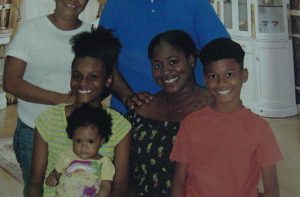IF you ask, many parents would profess that they connect with their children. They would say, ‘How you mean? Of course, I connect with my child. ‘I know everywhere he goes, who his friends are and what he is doing at any given time of the day.’
But does knowing about your child constitute connection? Connection entails being in touch with your child’s mind; his needs, anxieties, and aspirations. Some parents and children interact well. Information, conversation and reasoning, have been established over time and flow naturally. While other parents have to pry and dig out whatever snippets of information their child may choose to share, leaving them feeling unsure about the authenticity of events.
In the beginning, parents connect to their babies through touch. They can hug their babies to make them feel secure and talk and play with them to communicate and build their learning capacity. The connection should start with the very young. Babies need to bond and feel secure and adults should provide consistent care and protection. Communication and security, along with love and encouragement should be available throughout the child’s life.
When a child grows without this type of start in life, it may not be immediately apparent that the child is missing out. He will still strive and even reach his milestones. But it stands to reason that the more positive qualities to which a child is exposed, the more wholesome his development will be. Therefore, parents must not overlook the importance of building a solid foundation for their child; one that can last a lifetime.
Regardless of a child’s age, if parents aim to connect, then they must spend quality time with their child building a worthwhile relationship. During these interactions, ALL technological gadgets must be turned off. That means cell- phones, I Pads, video games and all distractions in general. Parents must give their child one-to-one attention and listen to what their child has to say.

Listening must be without interruption, passing judgement or criticism. This is the only way parents will get a full picture rather than a tainted review of what their child wants to share.
Some parents have attitudes that are very off-putting for children. They swear, cuss and intimidate their children, yet they insist that their children confide in them. As much as parents might believe, ’I know my child…no one can tell me about my child…is my child.’ The child can equally say a word or two about his parent(s). Including the reasons why he would not tell his parent(s) certain things due to the reaction, he is bound to evoke or the trouble that may result from his revelation.
Some parents connect with their children negatively. They call them derogatory names; box and lash them and belittle them by telling them they are useless and will never amount to anything. Children are already at a disadvantage when they are born into uncaring households. Being abused and degraded in this way can only exasperate their emotions and add to their lack of confidence and self-esteem.
To connect, parents must find and maintain an area of communication with their child that is open and honest. They should seek to understand their child for who he/she is and not for who THEY would like him/her to be. Remember parents, your role is to guide, protect and encourage your children, not mould them into your ideal dream person. Your child must understand that you have his best interest at heart and there must be room for discussion and reasoning.
Listen to your child and allow him to think for himself by asking him questions, e.g. ‘So do you think your friend made a sensible decision?’ ‘What about the consequences of his actions?’ ‘What lessons were learnt from the incident?
Adults can then evaluate the information shared; preferably from an unbiased standpoint; and lastly, they can advise their child or if necessary, take appropriate action.
Children will only bring their inner thoughts, anxieties, problems, troubles or fears to their parents or caregivers, IF the adult is approachable, fair and open-minded.
Parents are older and wiser than children, they are meant to know how to use strategies and words to appease, teach and nurture their offspring. While all parental endeavours may be well-intended, they can only be effective if parents connect to their children.
Madeleine is a parenting skills series that will be shown on NCN Channel 11, this Wednesday, Thursday, Friday and Saturday at 19:15hrs. Don’t miss it!
If you are concerned about the welfare of a child call the CPA hotline on 227 0979 or write to us at childcaregy@gmail.com
A MESSAGE FROM THE CHILDCARE AND PROTECTION AGENCY,
MINISTRY OF SOCIAL PROTECTION




.png)









